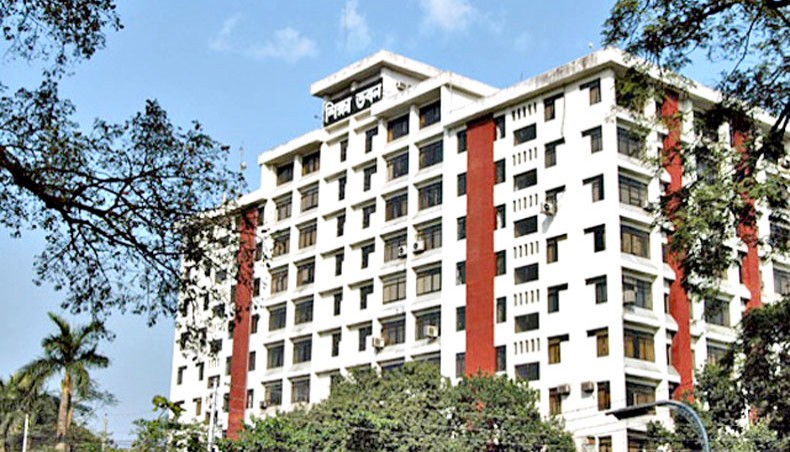
Nothing much happening in education budget

THE budget proposal for the 2023 financial year envisages an allocation of Tk 6,780.64 billion, which is up from Tk 6,036.81 billion as was proposed in the 2022 financial budget which was ultimately revised down to Tk 5,935 billion. The proposed outlay accounts for 15.2 per cent of the size of the gross domestic product. In preparing the budgets for the 2022 and 2021 financial years, the government had to take the Covid-19 outbreak into consideration, which may have forced the government to be somewhat conservative. The Russia-Ukraine war, an increasing rate of the dollar and soaring prices may also have influenced the budgetary propositions.
The budget for the 2022 financial year allocated 11.69 per cent of the outlay for education. In the proposal for the 2023 financial year, the allocation for education in percentage of the outlay has reached 12.01. As the allocation for education has hovered around 12 per cent of the national budget for several years, the budgetary allocation proposed for education for the next financial year does not promise much hope and appears traditional.
Although we have heard of steps to attend to the gap that the Covid outbreak created and lay waste the education sector for two years, the allocation accounts for 1.83 per cent of the gross domestic product. The global standard that UNICEF sets is to allocate 20 per cent of the national budget and 6 per cent of the gross domestic product for education, which is yet to happen in Bangladesh. In terms of education spending, the percentage of the gross domestic product and the total budget outlay rank Bangladesh in the bottom among South Asian countries. Even Nepal is ahead of Bangladesh in this regard.
A national budget of Tk 6.78 trillion proposed in the parliament on June 9 can be a matter of a talking point in view of the price increase that has constrained citizens. This is true that Tk 118.06 billion more has been allocated for three ministries and divisions dealing with education in comparison with the allocation for the 2022 financial year.
The secondary and higher education division, the madrassah and technical education division and the primary and mass education ministry in the proposal have had an allocation of Tk 814.5 billion, which was Tk 696.4 billion in the outgoing financial year. The primary and mass education ministry has had an allocation of Tk 317.61 billion, which was Tk 282.22 billion in the outgoing financial year.
The secondary and higher education division has had an allocation of Tk 399.62 billion against the allocation of Tk 324.13 billion in the outgoing financial year. The madrassah and the technical education division has had an allocation of Tk 97.27 billion, which is Tk 7.18 billion more than the allocation for the outgoing financial year.
Students of all sorts of education streams and institutions have been out of touch with in-person affairs for about two years. The government tried to get the students connected to education using technology, but poverty and the unavailability of devices needed for such a connection have failed to make any impact as the online and outreach education has not reached to a huger number of students. The gap that the government efforts have created and showed and efforts to attend to the issue by way of a blended learning mode have been in discussion. But the budget has proposed the imposition of 10 per cent additional tax on fibre optic connection and laptops. This would add to the cost of the internet and devices that are needed to use the internet. The step appears contradictory.
The finance minister says that the rate of education at the secondary level, gender equality, general science and technology-based learning and training, stipend and scholarship for students and teachers, various steps to hone out the merit of students, building structure of government and non-government educational institutions and book distribution go on as part of government’s plan to spread education and increase its quality. He also talks about the recruitment of 38,283 teachers through the Non-government Teachers’ Registration and Certification Authority and that steps to recruti 15,163 teachers are under way. In 2021–2022, 1,200 classrooms were built. Three hundred and fifteen schools were turned into model schools in as many upazilas. The Education Trust Fund has Tk 10 billion to help the poor, deprived and meritorious students. But model schools appear not to have any impressive impact on the quality of education.
Editor & Publisher: S. M. Mesbah Uddin
Published by the Editor from House-45,
Road-3, Section-12, Pallabi, Mirpur
Dhaka-1216, Bangladesh
Call: +01713180024 & 0167 538 3357
News & Commercial Office :
Phone: 096 9612 7234 & 096 1175 5298
e-mail: financialpostbd@gmail.com
HAC & Marketing (Advertisement)
Call: 01616 521 297
e-mail: tdfpad@gmail.com